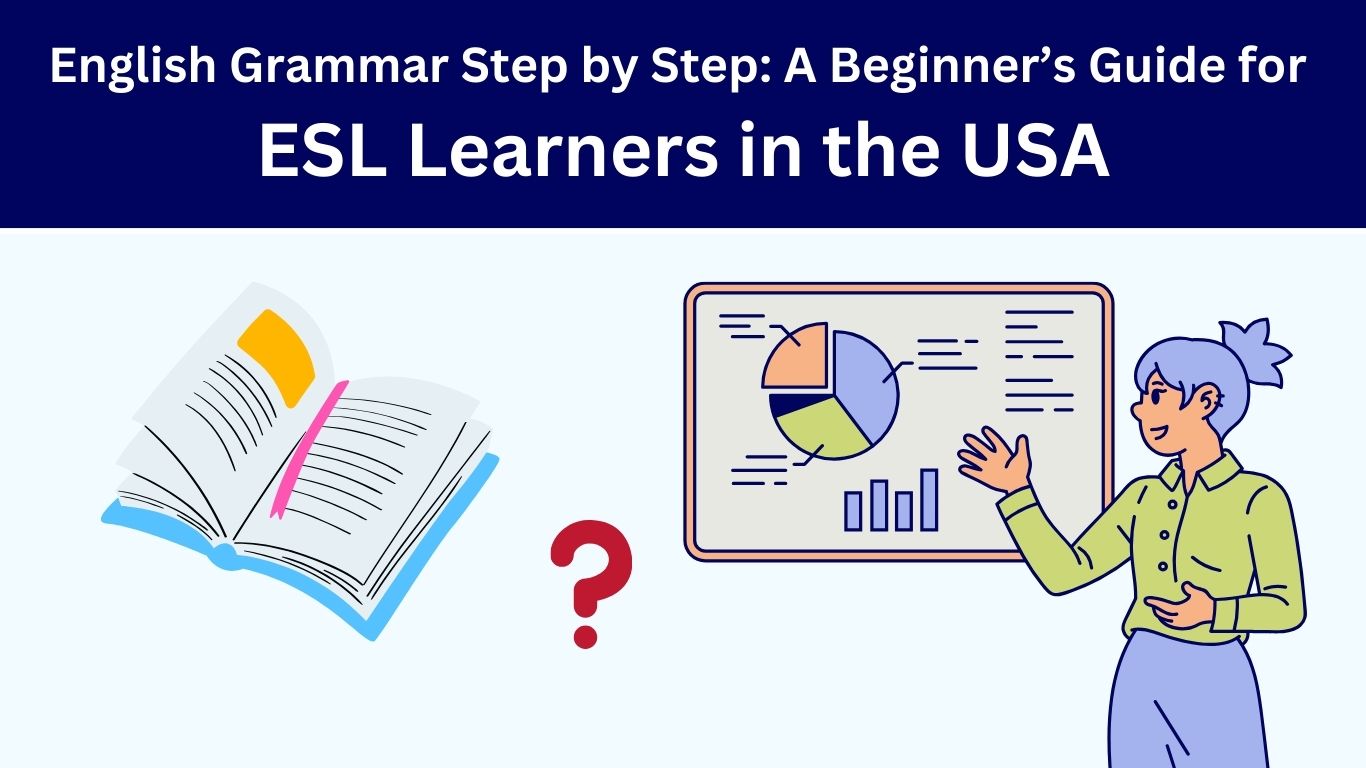Learn Prepositions is an important topic at the beginning of learning English. Although short, these words help clarify the meaning in sentences. This guide is made for students who want to learn English grammar step by step, in simple language.
What are learn Prepositions?
Prepositions are connecting words that join a noun, pronoun, or phrase to some other part of the sentence. They usually tell:
Place (Where?)
Time (When?)
Direction or movement (To where?)
Reason or manner (How or why?)
Some common pre-positions:
Place: in, on, at, under, behind, over
Time: at, on, in, before, after, during
Direction: to, into, onto and out of, toward
Others: with without by about for
Why Should You Pre-positions?
Pre-positions are everywhere in English! Learning their right usage helps you:
Speak more natively
Write neat and professional
Avoid typical grammar errors
Understand spoken and written English well
For ESL students in the US, slowly learning pre positions can boost confidence in academic settings, workplaces, and casual chats.
1: Learn Prepositions of Place
In this step you will learn how pre positions are used to indicate the position of objects or people.
Common Place:
| Preposition | Example |
|---|---|
| in | The keys are in my bag. |
| on | The book is on the table. |
| at | She is at the door. |
| under | The shoes are under the bed. |
| behind | The cat is behind the curtain. |
2: Learn Prepositions of Time
Here’s how learn preposition used for time work.
Common Time:
- At → specific time: at 5 PM, at night
- On → specific day/date: on Monday, on July 4th
- In → months, years, parts of day: in April, in 2025, in the morning
- In → years, months, parts of day or Week: in May, in May 2025, in the evening, in the morning
- Before / After → in relation to another time
- During → over a period of time
Example Sentences:
-
I wake up at 8 AM.
-
She was born on Friday Day.
-
We moved here in 2022.
-
We met after lunch.
-
It rained during the game.
3: Learn Prepositions of Direction and Movement
In this step we will learn how pre-positions are used to indicate the direction something is going.
Common Examples:
-
To – I’m going to the store.
-
Into – She walked into the room.
-
Onto – He jumped onto the bed.
-
Out of – They ran out of the house.
-
Toward – She moved toward the window.
These pre-positions assist in providing directions or explaining actions that involve movement.
4: Exploring Prepositions for Reason, Cause, and Manner
Not knowing prepositions can change the meaning of the sentence. So it is important to learn it.
-
Because of – We stayed home because of the rain.
-
Due to – The delay was due to traffic.
-
With – He cut the paper with scissors.
-
Without – She left without saying goodbye.
5: Frequently Used Prepositional Phrases
A prepositional phrase consists of words that begin with a pre-position and conclude with either a noun or a pronoun.
Examples:
-
In front of the school
-
Next to the bus stop
-
On top of the shelf
-
In the middle of the room
Learn prepositions by remembering common phrases like these. They help you sound more fluent.
Step 6: Learn Prepositions Easily with Simple Tips
-
Group pre-positions by type (place, time, direction)
-
Use flashcards with examples
-
Practice with pictures – describe what you see
-
Create your own sentences
-
Watch English shows and notice how pre positions are used
-
Keep a grammar notebook just for pre positions
-
Quiz yourself regularly
Learning one step at a time will make it easier to pre positions without feeling overwhelmed.
Step 7: Common Preposition Mistakes (and How to Fix Them)
Let’s look at a few mistakes learners often make – and how to correct them
- ❌ She is married with a doctor.
- ✅She is married to a doctor.
- ❌I’m good in English.
- ✅ I’m good at English.
- ❌ He depends in his parents.
- ✅ He depends on his parents.
Listening carefully and using grammar check tools can help you avoid these common errors.
Final Thoughts
Though small in size, it holds significant importance in language use. To achieve a more natural proficiency in spoken and written English, it is essential to master and understand prepositions
Remember:
- Take it step by step
- Focus on one type of preposition at a time
- Practice every day
- Use real-life examples
